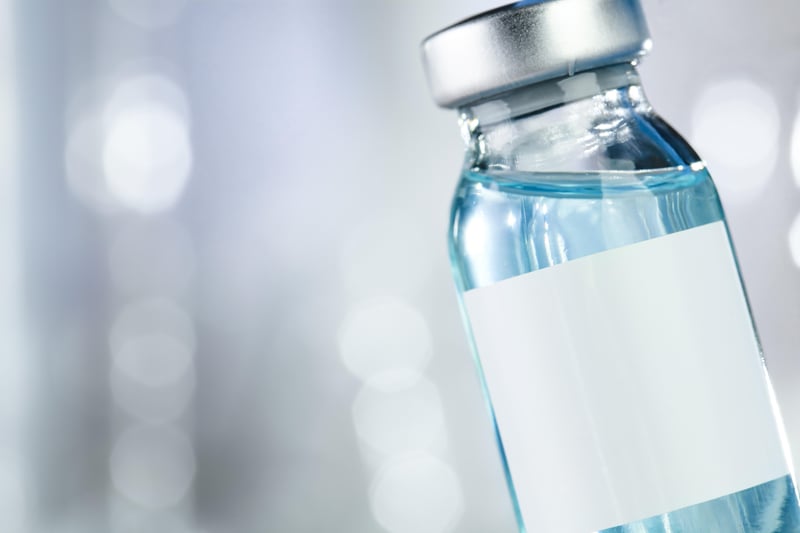Get Healthy!

- Posted May 3, 2023
FDA Approves First RSV Vaccine
The first vaccine for respiratory syncytial virus (RSV) has been approved by the U.S. Food and Drug Administration for use in seniors aged 60 and older.
Arexvy, manufactured by GlaxoSmithKline (GSK), is expected to help prevent lower respiratory tract infections caused by RSV, the agency said Wednesday.
"Older adults, in particular those with underlying health conditions, such as heart or lung disease or weakened immune systems, are at high risk for severe disease caused by RSV,"Dr. Peter Marks, director of the FDA's Center for Biologics Evaluation and Research, said in an FDA news release.
"Today's approval of the first RSV vaccine is an important public health achievement to prevent a disease which can be life-threatening and reflects the FDA's continued commitment to facilitating the development of safe and effective vaccines for use in the United States,"Marks added.
Now that the vaccine is approved, the U.S. Centers for Disease Control and Prevention will weigh later this summer whether all seniors should get the shot or just those considered at high risk for severe infection.
The FDA is also evaluating a competing RSV vaccine from Pfizer, and is expected to next consider the vaccines for use in pregnant women to protect newborns from RSV in the weeks following delivery.
"This is a great first step ... to protect older persons from serious RSV disease,"Dr. William Schaffner, medical director of the National Foundation for Infectious Diseases, told the Associated Press. Next, "we're going to be working our way down the age ladder"for what's expected to be a string of new protections.
RSV is a highly contagious virus that spreads widely during the cold and flu season, with cases typically starting in the fall and peaking in the winter, the FDA said. RSV hit Americans particularly hard during the last cold and flu season, as pandemic restrictions were finally lifted. The virus tore through populations of young children who had never been exposed to it.
In older adults, RSV can cause life-threatening pneumonia and bronchiolitis -- swelling of the small airway passages in the lungs. Each year in the United States, RSV leads to approximately 60,000 to 120,000 hospitalizations and 6,000 to 10,000 deaths among adults 65 and older, according to the CDC.
The FDA gave its approval based on a clinical trial in which approximately 12,500 participants from around the world randomly got an Arexvy vaccine, while 12,500 others received a placebo shot.
Results from a single RSV season showed that the vaccine was 82.6% effective in preventing RSV-induced lower respiratory tract infections, and just over 94% effective in reducing the risk of a severe infection.
Participants will remain in the study through three RSV seasons to assess the duration of effectiveness, as well as the safety and effectiveness of repeat vaccination, the FDA said.
The most commonly reported side effects by individuals who received Arexvy were injection site pain, fatigue, muscle pain, headache and joint stiffness or pain, the FDA said.
Among all clinical trial participants, atrial fibrillation within 30 days of vaccination was reported in 10 participants who received Arexvy and four participants who received the placebo.
Two other clinical trials involving Arexvy showed some concerning side effects that have warranted further review.
In one of the trials, participants received Arexvy along with an FDA-approved influenza vaccine. One person died after developing acute disseminated encephalomyelitis (ADEM), a rare type of inflammation that affects the brain and spinal cord, while a second fell ill with ADEM.
In the other study, one participant developed Guillain-Barré syndrome -- a rare disorder in which the body's immune system damages nerve cells, causing muscle weakness and sometimes paralysis -- nine days after receiving Arexvy.
The FDA is requiring GSK to conduct a postmarketing study to assess the signals of serious risks for Guillain-Barré syndrome and ADEM. The company also has committed to assess atrial fibrillation in the postmarketing study.
The hunt for an RSV vaccine has been ongoing since the 1960s, when an early version crashed and burned in clinical trials.
That earlier vaccine caused a phenomenon called antibody-dependent enhancement, where the antibodies produced by a vaccine actually make a virus more virulent and harmful. Two children died in that clinical trial.
But in the early 2010s, U.S. National Institutes of Health researchers figured out that the F protein which RSV uses to bind with a human cell -- much like COVID's spike protein -- actually changes shape after it forms that connection.
To create a protective immune response, an RSV vaccine would need to target the F protein's pre-infection shape, the researchers reported. Targeting the post-infection shape would either produce no protection or make an infection even worse.
This breakthrough prompted a race among Pfizer, GSK and other pharmaceutical companies to craft a safe and effective RSV vaccine.
More information
The U.S. Centers for Disease Control and Prevention has more about RSV.
SOURCE: U.S. Food and Drug Administration, news release, May 3, 2023




